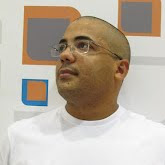25th European Systemic Functional Linguistics Conference
10-12 July, 2014
Université
Paris Diderot, France
The conference theme this year is “Change, Mutation,
Transformation…”. Our intention in choosing this year’s theme is to examine not
only how language change can be modelled using Systemic Functional Linguistics
(SFL), but also to examine how the SFL approach to language has changed over
time. Diachronic studies have always been a central issue in the SFL approach.
According to Michael Halliday, language change is thought to operate on at
least three different (but ultimately related) time-scales:
• the evolution of semiotic systems in human societies
(phylogenetic change),
• the development of language in the individual
(ontological change) and
• the unfolding of discourse in on-going texts
(logogenetic change).
The notions of time and the modelling of dynamic
change have recently emerged as key problems in the many fields of applied
linguistics that SFL is usually associated with. For example, there is
increasing interest in the analysis of short- and medium-term language change
in the relatively new field of Diachronic Corpus Linguistics. Similarly, in
Languages for Specific Purposes there has been a growing body of work on the
evolution and on-going development of specific registers and text types, a
topic which is of particular interest to SFL analysts in France. A similar
movement in Terminology studies, especially from a ‘socio-terminological’
perspective, has attempted to come to grips with variation and language change,
and now emphasises the dynamic, discourse-function of the text as a resource
for terminological innovation, as well as the essential role of neology in the
process of scientific writing. And in Translation studies, new technologies,
especially the practices of translation memory and digital publishing have
profoundly transformed the way in which theorists and practitioners view the
translated text no longer as a finished ‘product’, but rather as an on-going
‘project’.
All of these fields (corpus work, genre analysis,
terminology, translation studies, etc.) have long been seen as central preoccupations
of Systemic Functional linguistics. But no approach, even SFL, is safe from the
ravages of time. What have been the effects of changing practices and models,
and even language change itself on SFL as a theory? And to what extent do
diachronic studies in fields such as corpus linguistics or genre analysis feed
back into the SFL model? What can diachronic studies teach us about notions
such as ‘lexicogrammar’, ‘lexicogrammatical pattern’, ‘register’ or ‘genre’?
Our choice of conference theme is also an oblique
reference to the fact that it has been 25 years since the first European SFL
workshops organised in Nottingham in the 1980s. To what extent has there been
change in the academic and intellectual context in which SFL evolves, and how
has this change affected SFL? What aspects of SFL theory and practice have
changed, and which have stayed constant in all these years? Who are the
practitioners and theorists of SFL these days? Where do they come from, and
what tendencies do these changes suggest for the future?
CONFIRMED
PLENARY SPEAKERS
- Margaret Berry
(formerly Reader in English Language, University of Nottingham, UK)
- Jacques François
(emeritus Professor, Université de Caen)
- Erich Steiner
(Professor of English linguistics and Translation studies, Universität des
Saarlandes)
- Miriam Taverniers
(Professor of English linguistics, Universiteit Gent)
CALL FOR PAPERS
Contributions on any SFL-related topic are welcome.
However, we particularly encourage proposals which touch on the topics developed
in the the local Paris Diderot research group, namely:
• SFL and corpus linguistics
• SFL and language acquisition / education
• SFL and languages for specific purposes
• SFL and the history of linguistic ideas
• SFL and interlinguistics (linguae francae, world
Englishes…)
• SFL and language planning
• SFL and sociolinguistics
• SFL and terminology studies
• SFL and translation studies
SUBMISSION
GUIDELINES
Submissions are now open. For details on the
procedure, please visit our submissions page.
Deadline for submission: 15 January 2014
Notice of acceptance: 1 March 2014
Registration opens: 1 April 2014
Deadline for registration payments: TO BE ANNOUNCED
Abstracts should be 300 words maximum, plus a short
indicative bibliography. Abstracts should contain a statement of the aim of the
contribution, and should make clear how the paper relates to previous and/or
current work within SFL and any other frameworks. Abstracts should also provide
a description of the main part of the presentation and key references.
The working languages of the conference are English
and French. Abstracts may be submitted in either language. If accepted,
abstracts will be published in the Book of Abstracts. Beforehand we will check
the abstracts and contact you to see if there are any changes to be made.
If participants wish to present a multiple-author
paper (taking up more than one 30-minute slot), please indicate this in your
abstract proposal.
If accepted, conference participants should prepare
presentations lasting no more than 20 minutes plus 5 minutes for questions
(chairpersons will be also asked to leave 5 minutes for conference-goers to
change seminar rooms.) Projectors will be provided in all rooms (other equipment
may also be made available, if requested in advance).
The
programme committee looks forward to reading your proposals!
For
information: http://esflc2014.clillac-arp.univ-paris-diderot.fr/public/ESFLC2014









0 comentários:
Postar um comentário